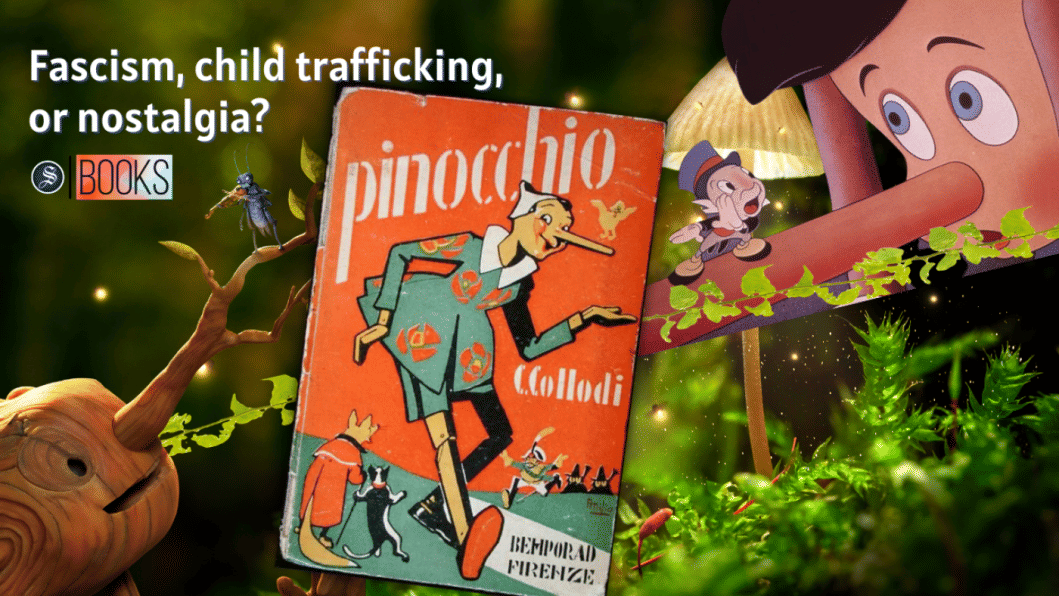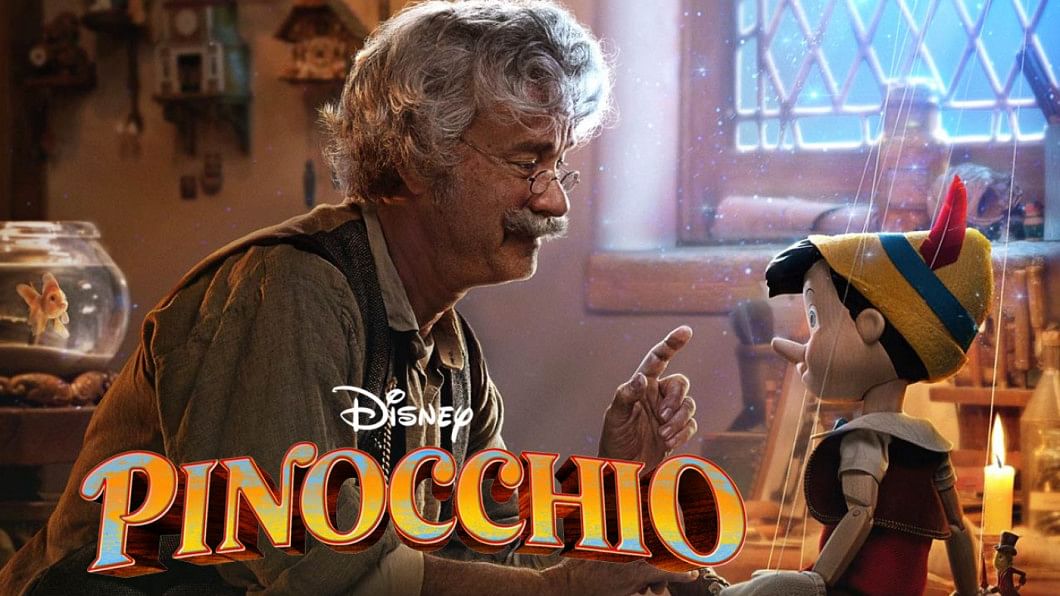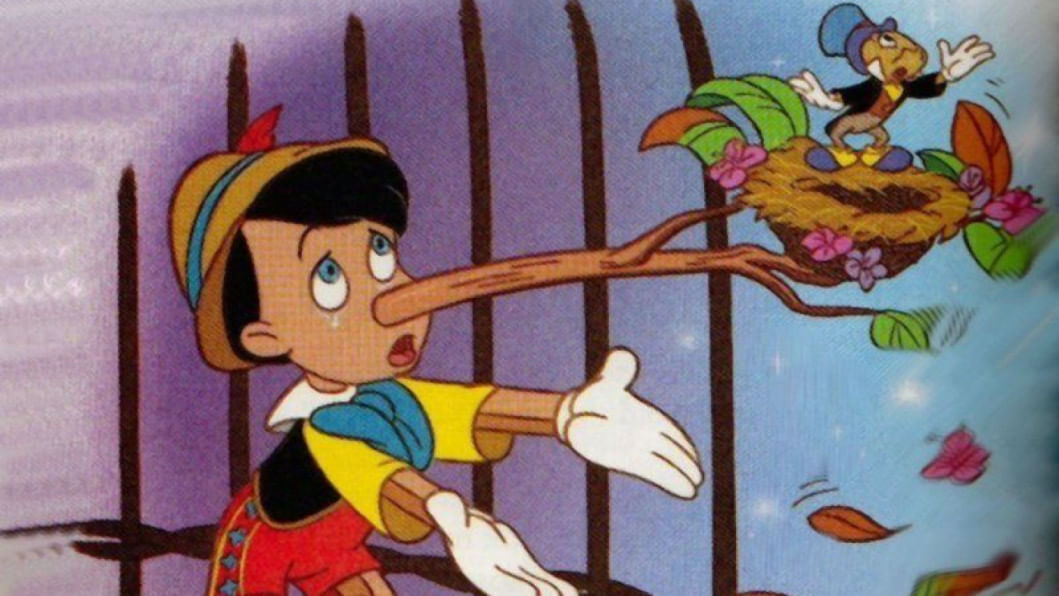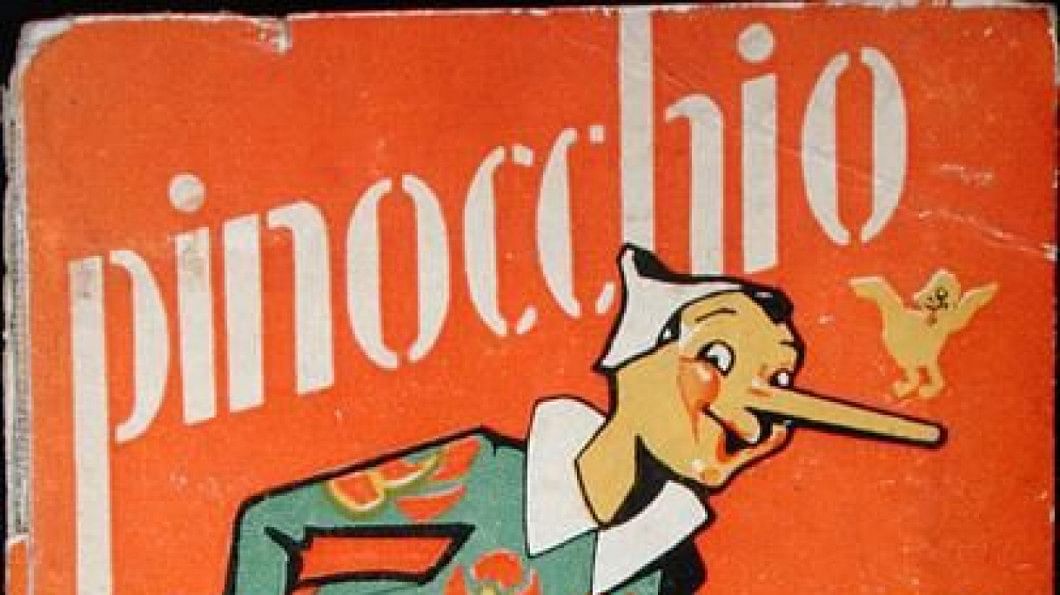Two upcoming Pinocchio films—why does he still resonate?

Renowned Italian author Carlo Collodi's The Adventures of Pinocchio was originally published in serialised form in 1881 in Giornale per i bambini, one of the earliest Italian weekly magazines for children. It came out as a novel in 1883.
In Italy, critics regard the story as a masterpiece: one of the greatest works in literary canon; a book that is rich in subtle allusions and clever contrivances, comparable to Gulliver's Travels (1726) or Alice's Adventures in Wonderland (1865).
Many English speakers, however, are more likely to have had their perceptions of the story coloured by Disney's 1940 animated film, Pinocchio. Rarely has a work of literature been so overshadowed by its celluloid adaptation.
The story of a boy-puppet, whose nose grows when he tells lies, who rebels against adult authority and who, through various adventures and misdeeds, grows to become a real and good boy is familiar to many of us—as its translation in virtually all known languages proves, its appeal extends beyond the geographical boundaries of Italy.
Since its publication, Collodi's novel has been acknowledged as a classic which can touch individual imagination and be appreciated in different cultures. While Collodi's masterpiece has generated endless revisitations, adaptations, interpretations, sequels, and even multi-media digital installations, Pinocchio, the character, has become a universal icon.
So, what is it about this story of a wooden puppet who dreams to be a real boy that has captivated audiences for almost a century and a half?
The Adventures of Pinocchio is a tale about the inward conflicts associated with change and growth. Like many classic fables that have weathered the passage of time, it carries the symbolic blueprint for social and emotional conflict and the potential for resolution: Pinocchio has many unpleasant adventures as he progresses from his wooden and dependent state to true independence as a real boy. He finally attains fulfillment and happiness when he completes his quest for the psychological foundations of courage.
This year, there are two high-profile adaptations of Collodi's story coming to streaming services. Before Guillermo del Toro's stop-motion version is due closer to Christmas on Netflix, we will be treated to Robert Zemeckis' live-action/computer animation hybrid remake of Disney's animated classic on Disney+ on September 8.

The Adventures of Pinocchio is a dark and cruel tale. The animated 1940 film, though quite disturbing in its own right, features a puppet protagonist who is naïve and easily influenced rather than malicious. It sweetens and lightens the dark tones of the original story, reestablishing it for the tastes of modern-day children. It turns, for instance, the talking cricket into a comical and wisecracking partner who accompanies Pinocchio on his adventures. In Collodi's text, he was an unnamed, minor character who was in fact killed by Pinocchio.
Part of the reason the film gets away with being so disturbing is Jiminy Cricket, our narrator and entryway into what appears to be a cosy, but fundamentally lonely world. The film devotes a lot of time to establishing the comfortable security of home.

Geppetto is a kindhearted but lonely woodcarver and toymaker who builds and raises Pinocchio as if he were his real son. We see the story through Jiminy's eyes, examining Geppetto's almost unbearable loneliness, a pining for human companionship so extreme that he has created a mechanical universe of his own devising. He treats his cat and goldfish better and more closely than most people treat actual children. We feel for Geppetto, a childless man obsessed with children's toys and make-believe, so much so that it almost feels like the universe owes him a child surrogate. His home is sterile and mechanical, with clockwork devices and lush, painted backdrops, which give it a heavy and rigid feel, but also make it seem like a space out of time, where the rules are different and puppets come to life.
Establishing this sentimental, dewy innocence through characters like Geppetto and Jiminy Cricket in the first half makes the animated film's immersion into the horrifying world of the completely amoral and debauched in the latter half more palatable. Once Pinocchio leaves his house for school, he is confronted with the ugliness and horrors of the world.

To me, Pinocchio is a story about how difficult it is to really take care of someone, to protect kids from a world that seemingly wants to destroy their innocence the moment they are out of our sight.
In the 1940 film, Pleasure Island, the stand-in for Collodi's Land of Toys, is a thinly veiled metaphor for human trafficking. It is a place where kids can misbehave to their heart's content. Delinquent activities include gambling and chomping on cigars. Kids who indulge in such behaviours slowly turn into donkeys. The overseers then ship them to various unscrupulous organisations, never to be seen nor heard from again. For the remake, Disney needs to consider that such implications are not for sensitive viewers.
On the other hand, del Toro's 2022 Pinocchio will take place not in a fairytale world, but in Italy between World War I and World War II, during the rise of fascism and authoritarian rule in the country. The wooden boy happens to come to life in an environment in which citizens behave with obedient, almost puppet-like faithfulness, according to reports.
Nevertheless, the director has affirmed to the media that his ambitious project is first and foremost a family film, one with hard-to-swallow themes that younger generations today need to grasp desperately.
"These are times that demand from kids a complexity that is tremendous. Far more daunting, I think, than when I was a child. Kids need answers and reassurances.… For me, this is for both children and adults that talk to each other. It tackles very deep ideas about what makes us human," he told Vanity Fair.

We can expect his film to take much darker turns than either of Disney's versions. The novel's talking cricket is heavily featured in the teaser. He is played by Ewan McGregor and speaks in the past tense. So, whether he will be killed early on is uncertain. Either way, he will most likely represent a more complicated moral voice than the beloved cartoon character.
For those interested in the Pinocchio story and the diverse interpretations it inspires, 2022 will be an exciting chance to see the fundamentals of adaptation and interpretation in motion. Zemeckis' version will likely be a comforting trip into nostalgia and sentiment, an ode to the power of the human heart to do the right thing despite life's many temptations. At the same time, del Toro's will be a dark fairytale with troubling implications, examining how we puppets can learn to think for ourselves.
Shababa Iqbal is a Media and Communications graduate from Independent University, Bangladesh (IUB). Email: [email protected].

 For all latest news, follow The Daily Star's Google News channel.
For all latest news, follow The Daily Star's Google News channel. 






Comments